“We knew what the people wanted: the same thing the Doors wanted. Freedom.” The not-so-secret weapon of The Doors and one of rock and roll’s great psychedelic keyboardists, Ray Manzarek, 1939-2013.
Tag: The Sixties
You May Say They Were Dreamers…

“Bob radiated a passion for justice, and with joyful fervor he inspired everyone around him to share his belief in, and commitment to working for, a more democratic and just society. Through a long and varied career, Bob took on many roles and causes – but all of the chapters in his remarkable life were connected by his essential decency, kindness and compassion.” Bob Edgar, former Congressman, campaign finance activist, and president of Common Cause, 1943-2013.
Mrs. Peel, We are Needed.
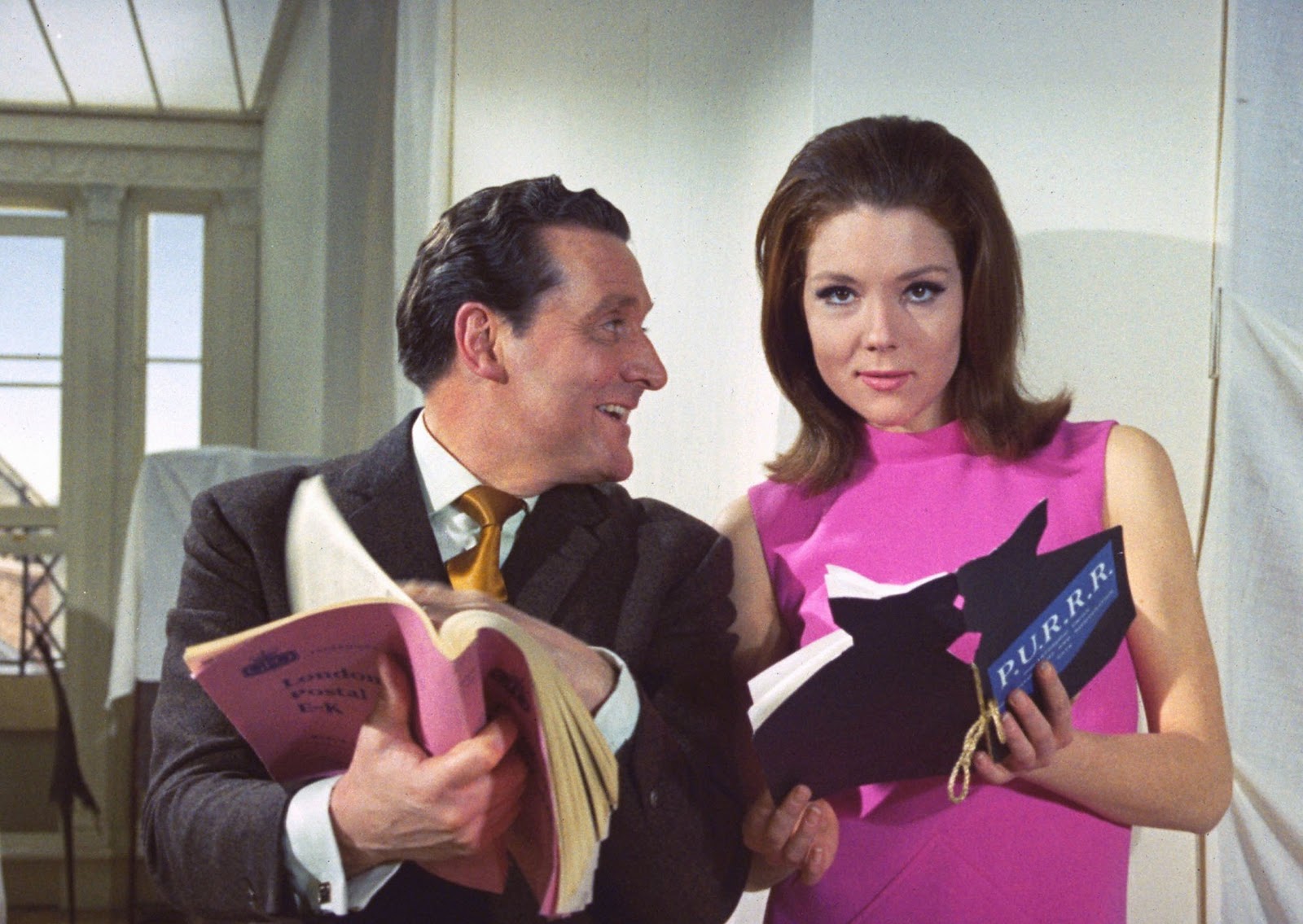
Before Mulder and Scully, there was Steed and Peel: In the AV Club, Noel Murray sings the praises of “The Avengers’ stylish, lascivious vision of Britishness. I’ll confess that Mrs. Peel remains one of my earliest and enduring fanboy crushes. “[T]he secret to The Avengers’ ribaldry was that it isn’t just about sex: It’s also about power. Gale and Peel didn’t just flummox men with their beauty; they also had brilliant minds, and they kicked gents’ posteriors, routinely.” (Images via Heather McLendon.)
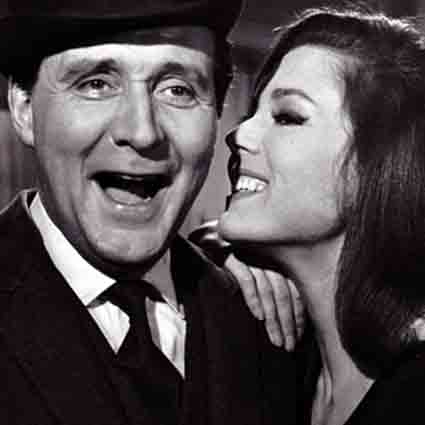
The Eagle has Landed.

Commander Neil Armstrong, the pioneer who took the first step on extra-terrestrial soil and towards our ultimate destiny, 1930-2012. “The important achievement of Apollo was demonstrating that humanity is not forever chained to this planet…our opportunities are unlimited.“
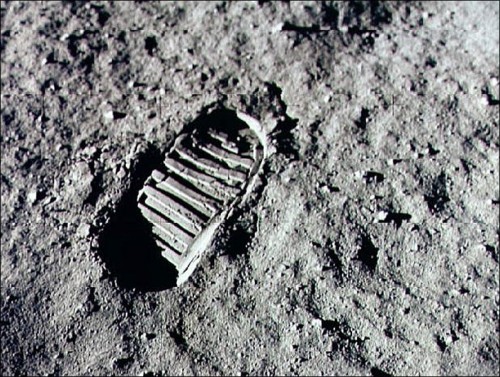
The High-Water Mark.
“And that, I think, was the handle — that sense of inevitable victory over the forces of Old and Evil. Not in any mean or military sense; we didn’t need that. Our energy would simply prevail. There was no point in fighting — on our side or theirs. We had all the momentum; we were riding the crest of a high and beautiful wave.”
“So now, less than five years later, you can go up on a steep hill in Las Vegas and look West, and with the right kind of eyes you can almost see the high-water mark — that place where the wave finally broke and rolled back.”
Song of the South.
“Here was the Delta Republicans’ historic task: negotiating terms of surrender to the Constitution, then reframing that Lost Cause as honorable, the better to preserve their insular plutocracy — perhaps their gravest sin in the first place — in order to integrate themselves more snugly into national and international circuits of corrupt wealth. Haley Barbour, who received his first Republican patronage job in 1970, is a true son of this confederacy.“
In the wake of Haley Barbour’s highly dubious misremembering of civil-rights era Mississippi, historian Rick Perlstein skewers the GOP poobah and presidential hopeful to the wall. “At every important turn in the story, Barbour emphasizes how little he remembers of this most intense period imaginable in his beloved home town — it really was no big deal, he insists…He’s a middle-aged Southern conservative. That is what his job is: to opportunistically ‘forget.‘”
Dark Side of the Moon.

“Fate has ordained that the men who went to the moon to explore in peace will stay on the moon to rest in peace.These brave men, Neil Armstrong and Edwin Aldrin, know that there is no hope for their recovery. But they also know that there is hope for mankind in their sacrifice. These two men are laying down their lives in mankind’s most noble goal: the search for truth and understanding.“
In a fascinating remnant of alternate history, Letters of Note unearths Nixon’s Safire-penned speech on the (possible) failure of Apollo 11. “Others will follow, and surely find their way home. Man’s search will not be denied. But these men were the first, and they will remain the foremost in our hearts.”
A Mole in the Movement.
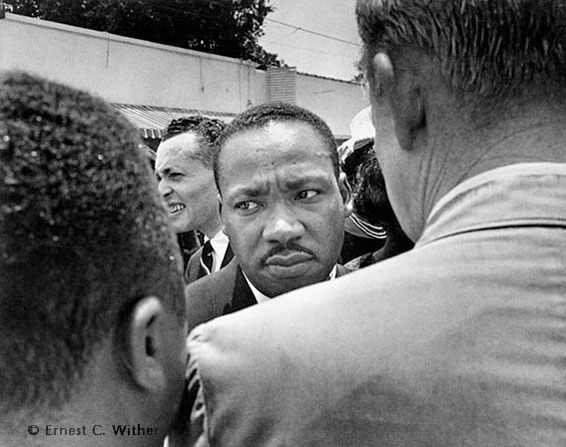
“Responding to the newspaper’s requests, the government instead released 369 pages related to a 1970s public corruption probe that targeted Withers — by then a state employee who was taking payoffs — carefully redacting references to informants — with one notable exception. Censors overlooked a single reference to Withers’ informant number.“
Thanks to one small clerical error, the Memphis Commerical Appeal uncovers the hidden life of famed civil rights photographer Ernest Withers, who apparently doubled as an FBI informant. [Reaction.] “‘He was the perfect source for them. He could go everywhere with a perfect, obvious professional purpose,’ said Pulitzer Prize-winning historian David Garrow, who, along with retired Marquette University professor Athan Theoharis, reviewed the newspaper’s findings.” Shady.
The Patriot.
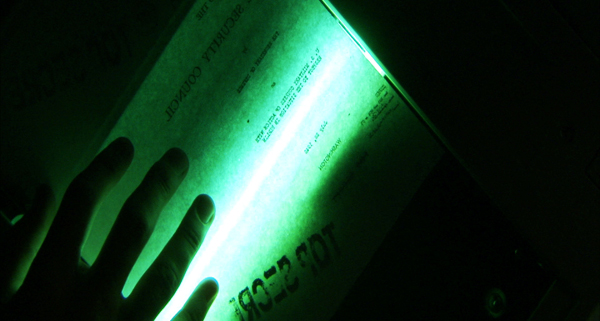
On one hand, the film makes for an interesting moral counterpoint to The Fog of War: Ellsberg’s actions put the lie to a lot of McNamara’s convenient post-hoc rationalizing therein — clearly, SecDef could’ve done more at the time to end the war in Vietnam.) On the other, Ellsberg also works as a prequel of sorts to All the President’s Men — to say nothing of a generation of seventies paranoia epics like The Parallax View and Three Days of the Condor. But in the end, The Most Dangerous Man in America probably works best as an eloquent testament to the words of the late Howard Zinn (who appears here as an old friend of Ellsberg): “Dissent is the highest form of patriotism.”
Like Man on Wire, Ellsberg starts here in media res, and at the scene of the history-making crime. Furtive eyes scan back and forth as an old-school Xerox copier whirrs in the dark, its green light illuminating maps of Southeast Asia and the ominous words “Top Secret” from below. With no zip drives or electronic files to speak of, analyst Daniel Ellsberg is forced to copy the 7000 pages of the Pentagon Papers page by painstaking page. It’ll take months (and eventually he enlists the aid of his kids.) As the Xerox churns, we get up-to-date on the ramifications of the document being processed — bombs fall from the sky over North Vietnam and Cambodia, weary troops patrol the hot, fetid jungle, and Nixon and Kissinger obsess over the leaks in their war machine (with Kissinger giving Ellsberg his moniker: “the most dangerous man in America.”)
Cut back to several years earlier, when the future leaker of the Pentagon Papers seemed quite a different man indeed. A fresh-faced young ex-Marine with a crisp, no-nonsense Kennedy era haircut, Ellsberg began his tenure in government as one of the Best and the Brightest, with an enthusiasm for his 80-hour workweek matched only by his hawkishness. As one of McNamara’s boys, Ellsberg concedes to helping massage the data to create a casus belli for the war. His first day on the job is the Gulf of Tonkin incident that wasn’t, and he spends subsequent weeks trying to dredge up some, any, horrible atrocities in the region that might involve Americans.
But, over time, the scales fall away from Ellsberg’s eyes. In part because he makes the acquaintance of a luminous lefty-leaning journalist named Patricia, who eventually becomes his fiancee…twice. (Ellsberg has a great line about a guy he meets at a peace rally who’s a Trotskyist. He asks this fellow how in Hell he ever became a Trotskyist. The answer: “The same way anybody becomes anything. I met a girl.”) And in part because, driven with an analyst’s overriding compulsion to find the right answer, he starts going to Vietnam himself to lead recon missions on the side and get a better sense of the situation on the ground. Simply put, the Ground Game is not going well.
The rest, as they say, is history. Moved to throw a shoe into the gears of the war machine he had helped nurture into existence, Ellsberg goes rogue and decides to publish the top-secret history of the war. But, even if you feel like you know the story of the Pentagon Papers pretty well, and I thought I did, there are some fresh and intriguing insights here. For example, I’m not really one for Freudianism or overthinking coincidences, but it turns out Ellsberg suffered a tragedy at the age of 15 that made him uniquely primed to play the role in history he ended up playing. (His father fell asleep at the wheel during a road trip, prompting a crash that sheared the car in two and killed Ellsberg’s mother and sister. In other words, watch the authority figures at the wheel verrry carefully.)
And then there’s the man himself, who’s an engaging presence throughout (if perhaps with a touch of monomania — I could see him being a hard guy to get along with.) If The Most Dangerous Man in America has a flaw, it’s that the movie is quite one-sided in the end — Ellsberg even narrates much of the story, and you get the sense at various points there may well be some whitewash being applied. (Ellsberg has an ex-wife, and kids, that aren’t even mentioned for the first 45 minutes or so.) Still, I’m inclined to give Ellsberg — and Ellsberg — the benefit of the doubt (and not just because the man loves his movies.) Ever since George and the cherry tree, we’ve been smoothing the edges of our patriotic tales. And, whatever his misdeeds as a man, Daniel Ellsberg, the film makes clear, is a patriot, through and through.
I use this Cornel West quote rather often, but that doesn’t make it any less true: “To understand your country, you must love it. To love it, you must, in a sense, accept it. To accept it as how it is, however is to betray it. To accept your country without betraying it, you must love it for that in it which shows what it might become. America – this monument to the genius of ordinary men and women, this place where hope becomes capacity, this long, halting turn of the no into the yes, needs citizens who love it enough to reimagine and remake it.”
Daniel Ellsberg is one of those citizens. He saw an obvious crime being perpetrated by our government across multiple presidencies, and he did his part to help put a stop to it. In many ways, the story told in The Most Dangerous Man in America seems quaint: Johnson actually asked Congress for authority to bomb Vietnam? The press wasn’t rolling over like a lapdog in the wake of obvious propagandistic lies? (In fact, the media types who show up late in Ellsberg clearly possess some of the narcisstic sense of self-entitlement that has been our undoing of late. Ellsberg the civilian sweats blood and tears to get this 7,000-page document out in public, and the press poobahs act like they’re both the knowing gatekeepers and the heroes of the story.)
But just because Ellsberg’s brand of patriotism has fallen out of fashion in the era of Judith Miller and the chattering class doesn’t make this story any less relevant. It makes it more relevant. If we’re going to keep our young republic through its third century, we need more men and women of Ellsberg’s stripe. Men and women who will buck the trend, risk the ridicule and wrath of their well-connected peers, and stand up against injustice done under our collective name when they are party to it.
Presidents will get their due on this and every subsequent Presidents Day to come. But, now and again, it’s good to honor those patriots who, through non-violent principle and sheer, dogged determination, help to keep our leaders in check when the separation of powers fails — ordinary folks like you, me, and Daniel and Patricia Elllsberg.
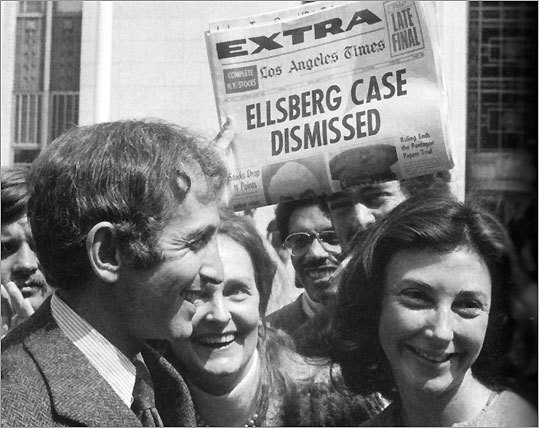
Backing into a Quagmire.
“I will tell you the more I just stayed awake last night thinking about this thing, the more I think of it, I don’t know what in the hell it looks to me like we’re getting into another Korea […] I don’t think it’s worth fighting for and I don’t think we can get out. And it’s just the biggest damned mess that I ever saw.” Also via Greenwald today and in light of Obama’s upcoming decision on Afghanistan, former LBJ aide Bill Moyers painstakingly pieces together how his old boss made the decision to escalate in Vietnam. “We will never know what would have happened if Lyndon Johnson had said no to more war. We know what happened because he said yes.“
